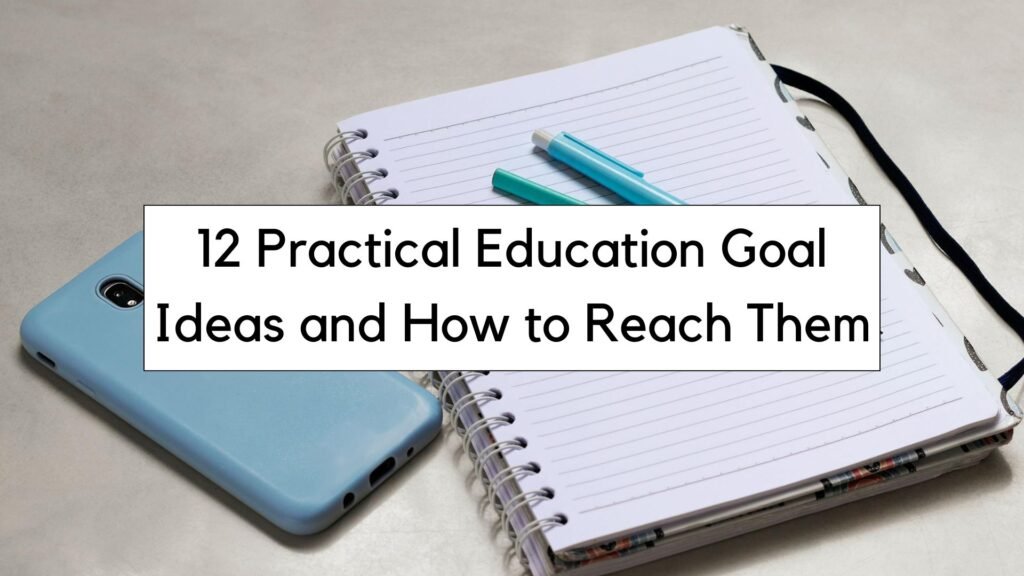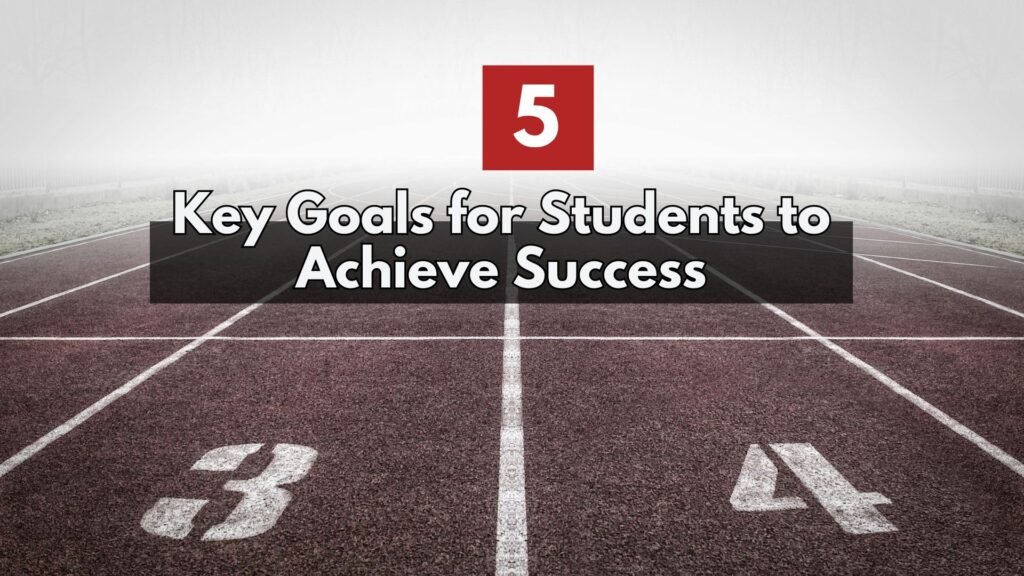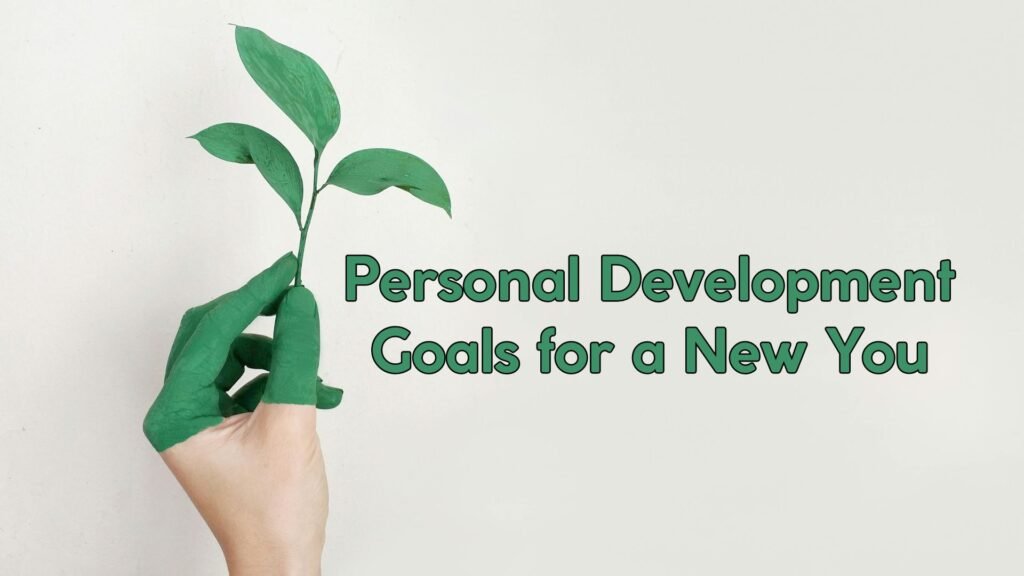“Education is the most powerful weapon which you can use to change the world.”
Nelson Mandela
Education has the power to change your life for better. Setting goals in your education is the first step to make a meaningful impact.
When your goals are clear, you can channel your energy and efforts in the right direction.
What are educational goals?
Educational goals are the targets you set for yourself on your learning journey. They give your education, purpose and direction.
There are two types of educational goals:
Short-term goals:
- Passing a test
- Learning a specific skill
Long-term goals:
- Graduating with hons
- Earning a degree in your field
12 Practical Education Goal Ideas
Here are 12 practical education goal ideas with tips on how to make them happen.
1. Time Management and Study Routine
When you take control of your time, you become more organized, and less stressed. You can easily prioritize tasks, and work more efficiently.
Practical Tip: The Pomodoro Technique
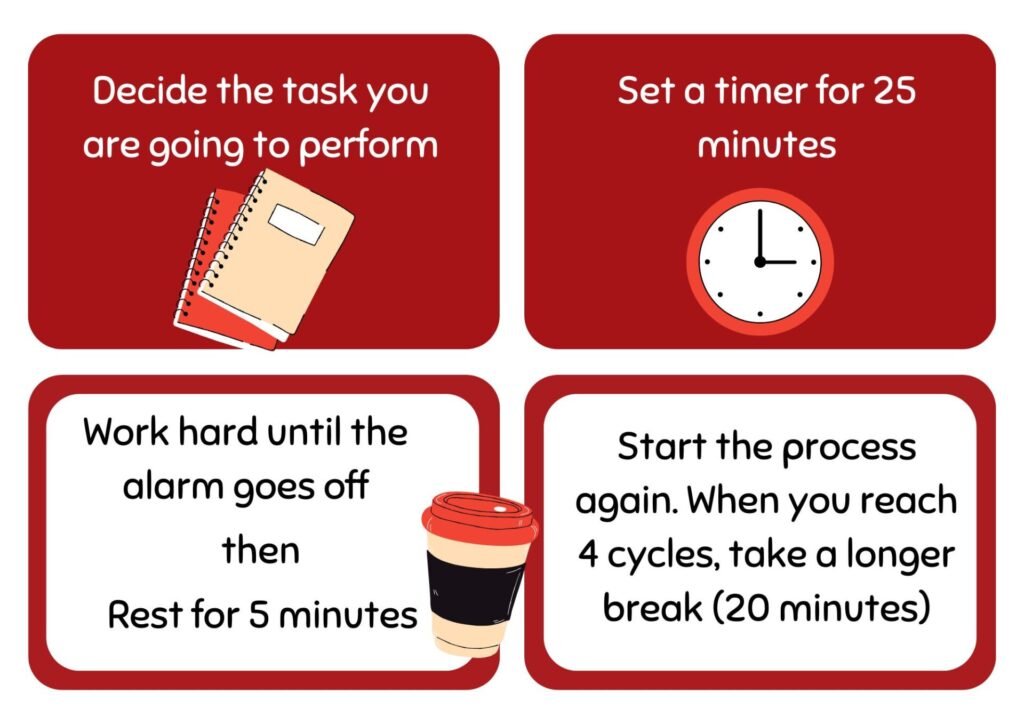
How it works:
- Set a timer for 25 minutes
- Focus on one task (really focus – put that phone away!)
- Take a 5-minute break
- After 4 rounds, treat yourself to a longer break
Maintain Your Study Routine
To maintain your study routine, make it a habit. Pick a study time that works for you – maybe you’re a morning person, maybe you’re not. The key is consistency, not copying what works for others.

2. Skill Development and Certifications
The job market doesn’t just want degrees anymore – they want proof you can do the work.
Strategic Skill Building
- Identify 3 core skills in your field
- Find free or low-cost certifications
- Build projects that demonstrate these skills
3. Build a Network That Opens Doors

You’ve heard “it’s not what you know, it’s who you know,” but reaching out to strangers feels awkward and forced.
Start small and then build your connections
- Start with your immediate circle
- Study groups
- Class projects
- Student organizations
- Use the “help first” approach
- Share useful resources
- Offer support before asking for favors
- Contribute to discussions
- Join Online Communities
- Join relevant Discord servers or Slack channels
- Participate in GitHub discussions if you’re in tech
- Comment thoughtfully on LinkedIn posts
4. Try Different Learning Methods
Not everyone learns the same way. Maybe textbooks put you to sleep, but videos make concepts click.
Find Your Learning Style
- Visual: Mind maps, diagrams, video tutorials
- Auditory: Podcasts, study groups, recording lectures
- Kinesthetic: Hands-on projects, role-playing, teaching others
- Reading/Writing: Summarizing, note-taking, writing guides
Try different learning methods and mix and match to see what works best for different subjects.
5. Make Use of Technology
Technology helps you connect and collaborate with others easily. It also prepares you for a world where digital skills are important.
Use technology to your advantage:
- Use apps that make studying feel less like work
- Take online courses that fit your schedule
- Master the digital tools your future career will need
6. Develop a Growth Mindset
What was the last time you faced a difficult task? Did you see it as an opportunity, or did you feel discouraged?
A growth mindset makes all the difference. It makes you resilient, adaptable, and always ready to learn.
Practical Mindset Shifts
- Replace “I can’t” with “How can I?”
- Document your progress (keep a learning journal)
- Ask for feedback
7. Balance Academics and Life
You’re either good in studying and have no life, or you’re having fun but falling behind in classes.
You have to keep the balance.
- Make a schedule that includes fun
- Choose activities you enjoy
- Set realistic goals
Use the “energy management” approach instead of time management. Schedule difficult tasks when your energy is highest.
8. Learn About Money Management
Financial literacy empowers you to plan for the future and navigate the complexities of personal finance.
Real-World Money Skills:
- Understand student loan repayment options
- Build an emergency fund while studying
- Do side hustle opportunities in your field
- Learn investment basics for students
9. Improve Communication Skills

You have great ideas but you can’t express them effectively if you do not have good communication skills.
Good communicators build good relationships, and lead with confidence.
Communication Framework
- Situation: What’s the context?
- Problem: What needs to be addressed?
- Solution: What do you propose?
- Action: What should happen next?
Pro tip: Record yourself presenting and watch it back. It’s uncomfortable, but it’s the fastest way to improve.
10. Enhance Your Critical Thinking
Critical thinking is important for solving problems and making informed decisions.
Rather than just accepting things at face value, critical thinking helps you break down complex situations, and come up with better solutions.
It’s a skill that empowers you to make smarter choices and tackle problems in a more effective way.
The IDEA Method
- Identify the real problem
- Develop multiple solutions
- Evaluate each option
- Act and assess results
Use this method for everything from choosing classes to deciding on internship offers.
11. Embrace Lifelong Learning
Learning doesn’t stop at graduation. Lifelong learning means you always have room for improvement.
Make it enjoyable:
- Follow your curiosity
- Learn a new skill
- Take online courses that interest you
- Attend workshops and seminars
12. Have Career Goals
Turn your education into opportunities:
- Explore different career paths through internships
- Build connections in your field
- Create learning projects
Create a Long-term Career Plan
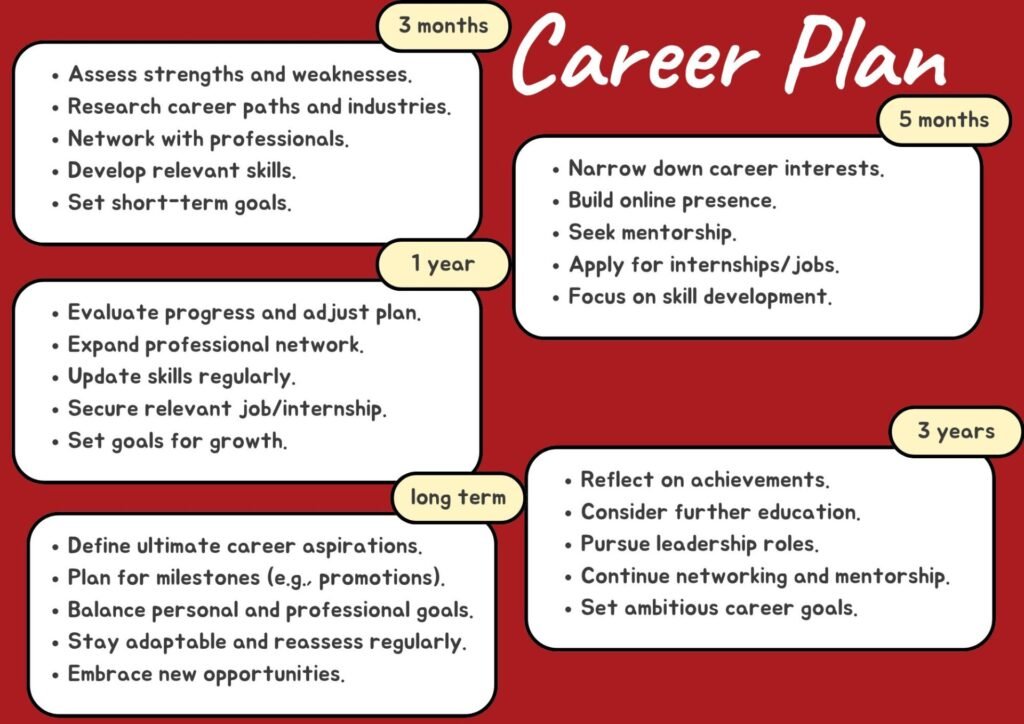
Why educational goals are important?
Educational goals matter because:
- They give you direction when you’re feeling lost
- They keep you going when you face setbacks and failures
- They help you manage your time
- They build your confidence with each small win
Final Thoughts
Your educational journey is unique to you. These goals are a great starting point, but feel free to adapt them to fit your needs and aspirations.
The most important thing is to take that first step.
“Education is not preparation for life; education is life itself.”
-John Dewey
FAQs
How do I determine the right education goals for myself?
Analyze what you like, what you’re good at, and what you want to achieve in the long run. Your goals should match with what you love doing.
How can I stay motivated when facing challenges in reaching my education goals?
Take your big goals and break them into smaller steps. Each time you finish one, celebrate! Ask for help from people who guide you, and remember why you’re doing this in the first place—it’s all for your future success.
Is it too late to set education goals if I’m already in my career?
You can set education goals anytime, no matter where you are in your career. Learning new things help you grow in both your personal and professional life.
What are some short-term education goal ideas?
Short-term education goals include completing specific courses or workshops, improving study habits, mastering new skills, attending networking events, seeking feedback, volunteering for projects, joining student organizations, and creating personal development plans.
What are some long-term education goal ideas?
Long-term education goals include earning a specific degree, like a doctorate in psychology or a master’s in business administration. They also involve becoming proficient in a particular skill, such as coding or graphic design. Additionally, long-term goals focus on contributing to your field through research, publications, or leadership roles in professional organizations.

